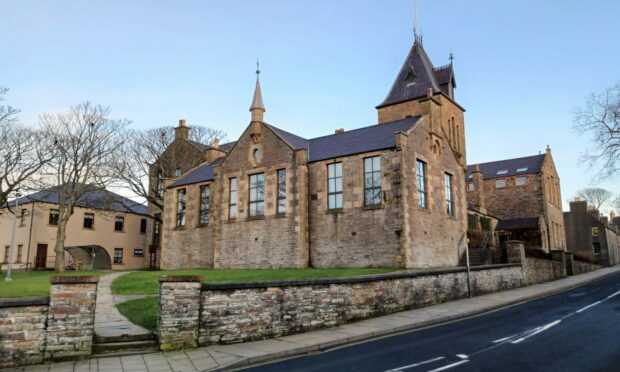A one-off cash payment of £200 could soon be on the way to vulnerable households in Orkney.
The boost is from the council to help ease pressures created by the cost-of-living crisis.
This week, councillors discussed what help the local authority could give to households. They decided to double the initial £100 per household recommended by council officers.
Three options were put to a special meeting of the council’s policy and resources meeting.
In a report, Orkney council officers recommended that the local authority move ahead with two schemes to deliver cost-of-living support.
The first would mirror the Scottish Government’s scheme, giving payments to those receiving council tax reduction, housing benefits and universal credit.
Parents with free school meals or clothing grant entitlement would also be covered, as would householders under 18 or care-experienced young people.
Who will receive the payments?
The council is also looking at a self-declaration scheme. This would apply to households who don’t receive benefits but still need help.
This looks at total household income and help would be given based on the Scottish Government’s definitions of a low-income threshold.
For example, by this definition, the threshold for a couple with two children is a monthly income of £4,482 or £1,034 per week.
Householders would have to put an application to the council to get the payment.
If ratified at full council, both schemes would launch in the New Year.
The council expects that up to around 8,550 households across Orkney could benefit, at a total potential cost of £1,710,000 if there were to be full uptake.
Those who receive the payment under the first scheme will not be eligible to apply for the second scheme.
This would come from the council’s strategic reserve fund (SRF), sometimes referred to as their “rainy day fund”.
Councillors were generally eager to deliver support to those in need.
However, not everyone agreed that doubling the officer-recommended £100 sum was the way to go.
Earlier in the same meeting, councillors were told that the SRF is expected to be worth around £30m less than expected at the end of the financial year. This would put it at just under £224m.
The decision to give households either £100 or £200 came down to a vote. Eight councillors voted for £100 and twelve voted for £200.
Is Orkney council walking into a ‘minefield’ in trying to deliver cost-of-living support?
It wasn’t just the amount, there were other concerns about Orkney council delivering cost-of-living support.
Councillor Lindsay Hall was worried about the effectiveness of the schemes, calling it a “minefield”.
He said: “We’re in danger of doing something and doing nothing if we’re not careful. How do you decide who’s eligible for what?
“The people at the greatest risk are people who are actually earning, people who are on lower incomes.”
“It isn’t income that decides the problem, it’s outlay.”
He said, if the council wasn’t careful, people would “slip through the net”.
He said the council could become “guilty of giving (to) people who aren’t in such dire situations”.
Other councillors felt the council should wait until the support for energy bills runs out in April before it commits itself to a higher rate of support.
Council leader James Stockan said, at the end of the day, the council is “looking at the fastest mechanism to reach the widest amount of people” with its support.
It was Kirkwall West and Orphir councillor Leslie Manson who pushed to increase the amount to £200.
He said he was “surprised and disappointed” by the suggested £100 payments.
He said: “I’m worried about gesture politics. There will be many families that will welcome £100.
Council can afford more than £100 payment, say councillors
“But I feel, with some of the pressures we know our communities are under, it seems very little.”
He added: “It’s Christmas and we have ambitious plans to bridge the revenue gap in the longer term.
“It’s awful easy to be the one that says ‘let’s spend more’ and it’s not always a popular move.
“But I was surprised by the relatively small amount we’re talking about giving.”
His amendment was backed by Sandy Cowie.
Mr Cowie said: “I think a lot of people will have economised as best they can during this period.
“But they’ll now be very worried about the costs that they’re going to encounter when their bills start to come in.
“Let’s not be OIC scrooge today. I think we can stretch it to £200.”
Councillors also backed cost-of-living support for the third sector.
They gave the thumbs-up to using an emergency grant of £305,000 from the Islands Cost Crisis Emergency Fund to support third sector organisations being hit by high electricity costs.
The proposals will now go on to a meeting of the full council, due to be held on Wednesday.


Conversation